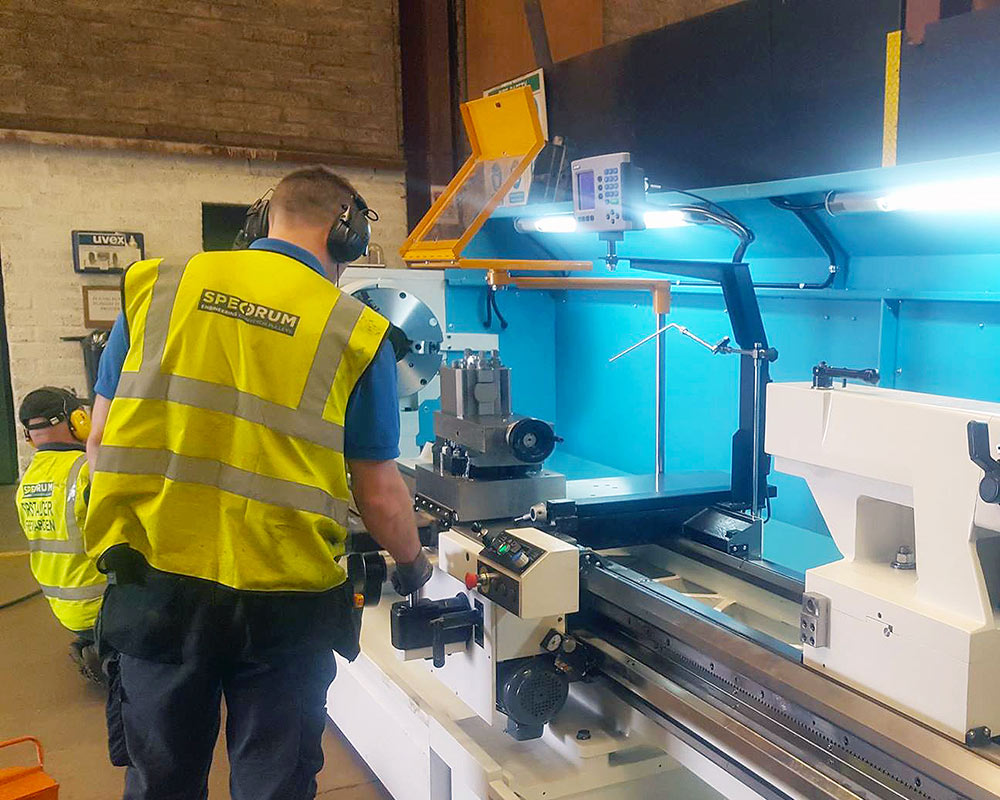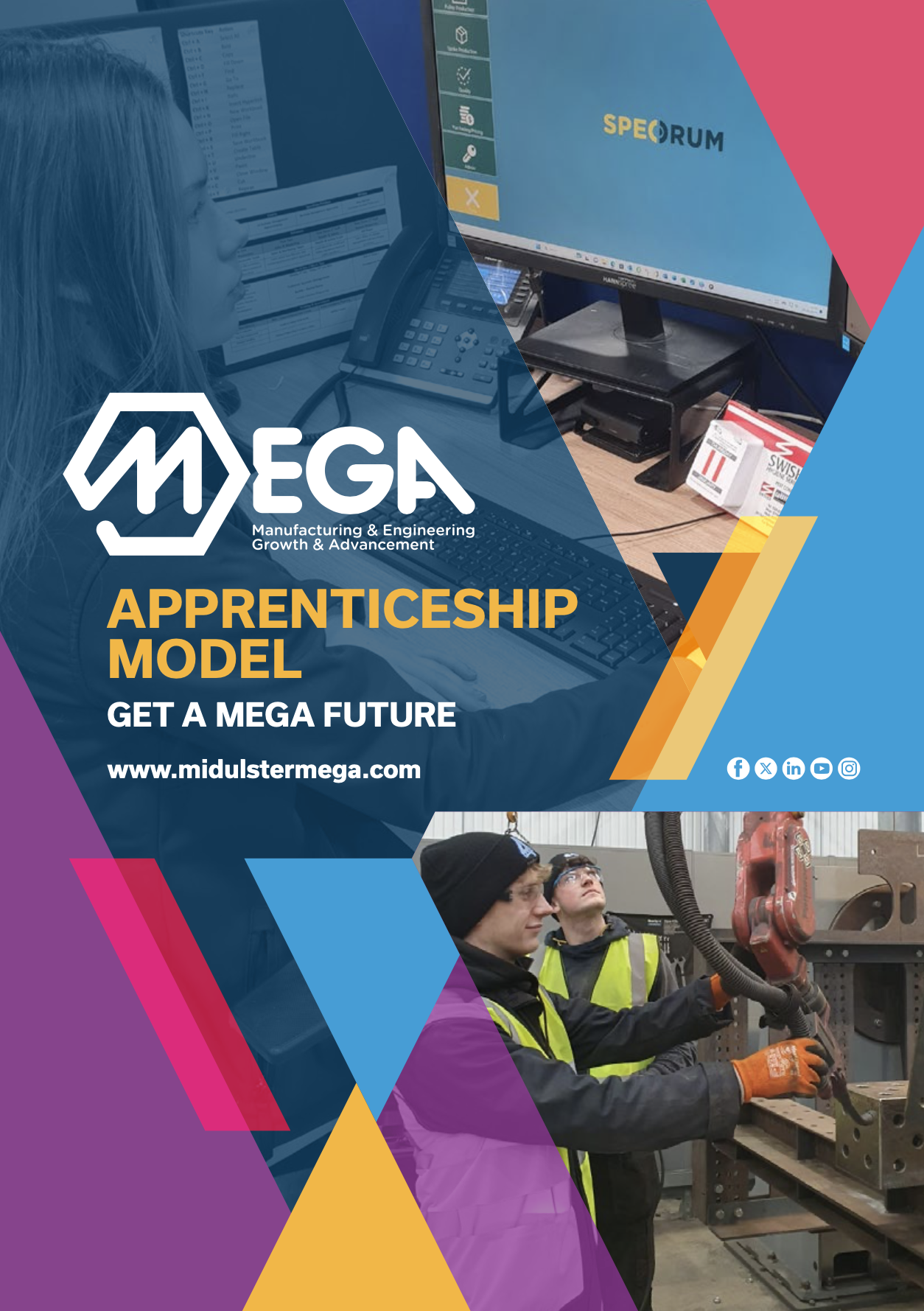MEGA Apprenticeship Model
Check out the 2024 MEGA Apprenticeship Model Booklet listing the range of apprenticeship courses and opportunities within our MEGA manufacturing companies. We recommend you start applying from as early as February/March for a September commencement.
This booklet provides:
- Apprenticeship courses available and the corresponding educational providers
- Entry requirements for each course
- Contact details of companies and their location
Please note that in order to start an apprenticeship (from Levels 2 – 5), you must apply directly to the company and educational provider. You must have a placement within a company in order to commence the apprenticeship course.
This does not apply to the MEGA Degree Apprenticeships with Ulster University. Please go to the Degree Apprenticeship section of our website for Manufacturing & Engineering and Accounting & Finance to find out how to apply.

Apprenticeships
An apprenticeship is a real paid job, where you will learn the skills, knowledge and behaviours needed to perform your role.
You will work through a combination of on-the-job training with your employer and part time off-the-job studying with your training provider.
What Levels are there?
Level 2
Equivalent: 5 GCSE passes
Level 3
Equivalent: 2 A Level passes
Higher Level Apprenticeships
Level 4 and 5
Equivalent: Foundation Degree, Higher National Diploma (HND) or Higher National Certificate (HNC)
Degree Apprenticeships
Level 6 and 7
The Benefits of doing an Apprenticeship
- Earn (a full-time wage) while you Learn
- Gain a widely respected and industry recognised qualification
- No fees
- No debt
- Industry experience
Further Enquiries
If you are a Student or a Company and wish to hear more about Apprenticeships, please fill in the enquiry form.
+44(0)7776527855
info@midulstermega.com
This site is protected by reCAPTCHA and the Google Privacy Policy and Terms of Service apply.

